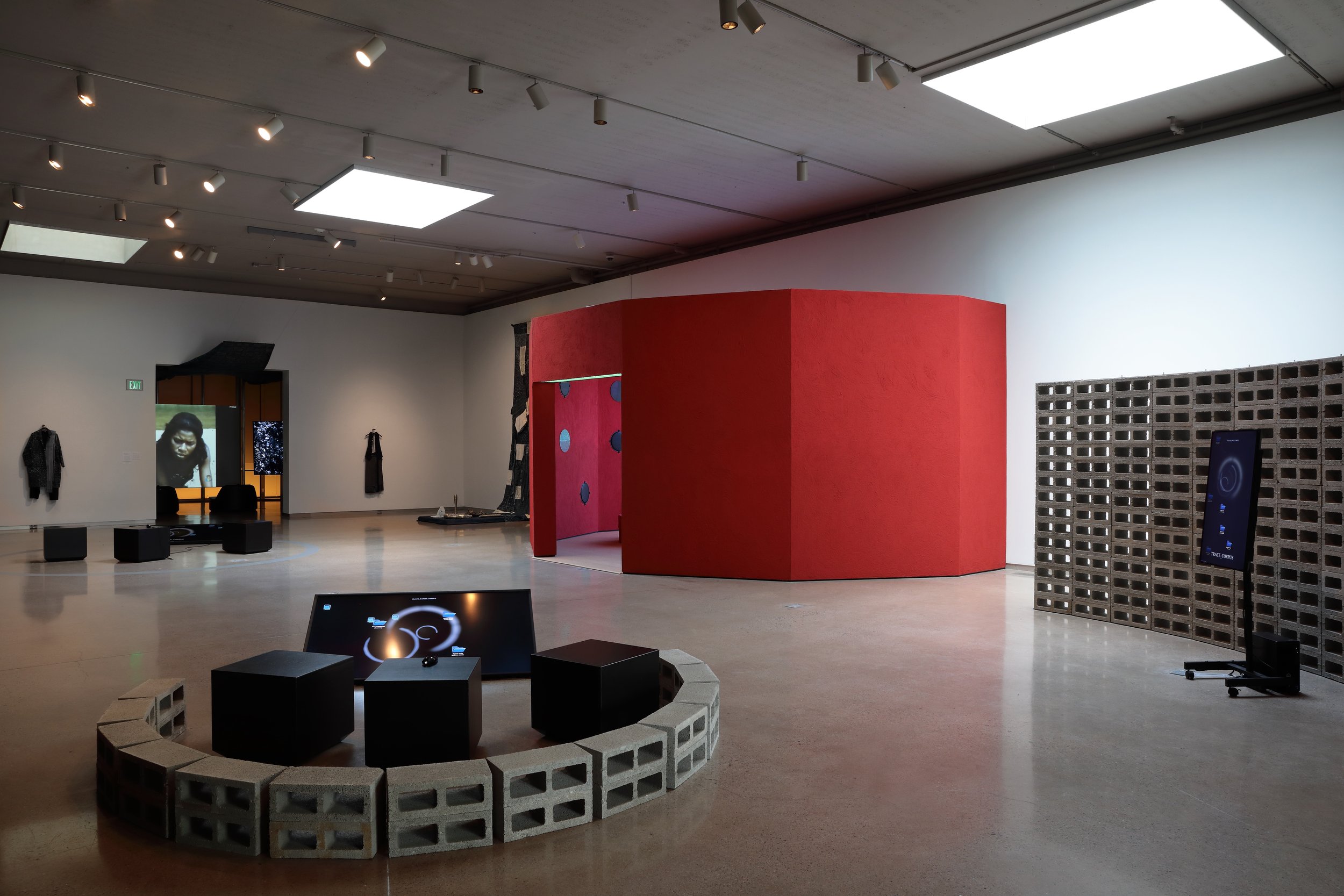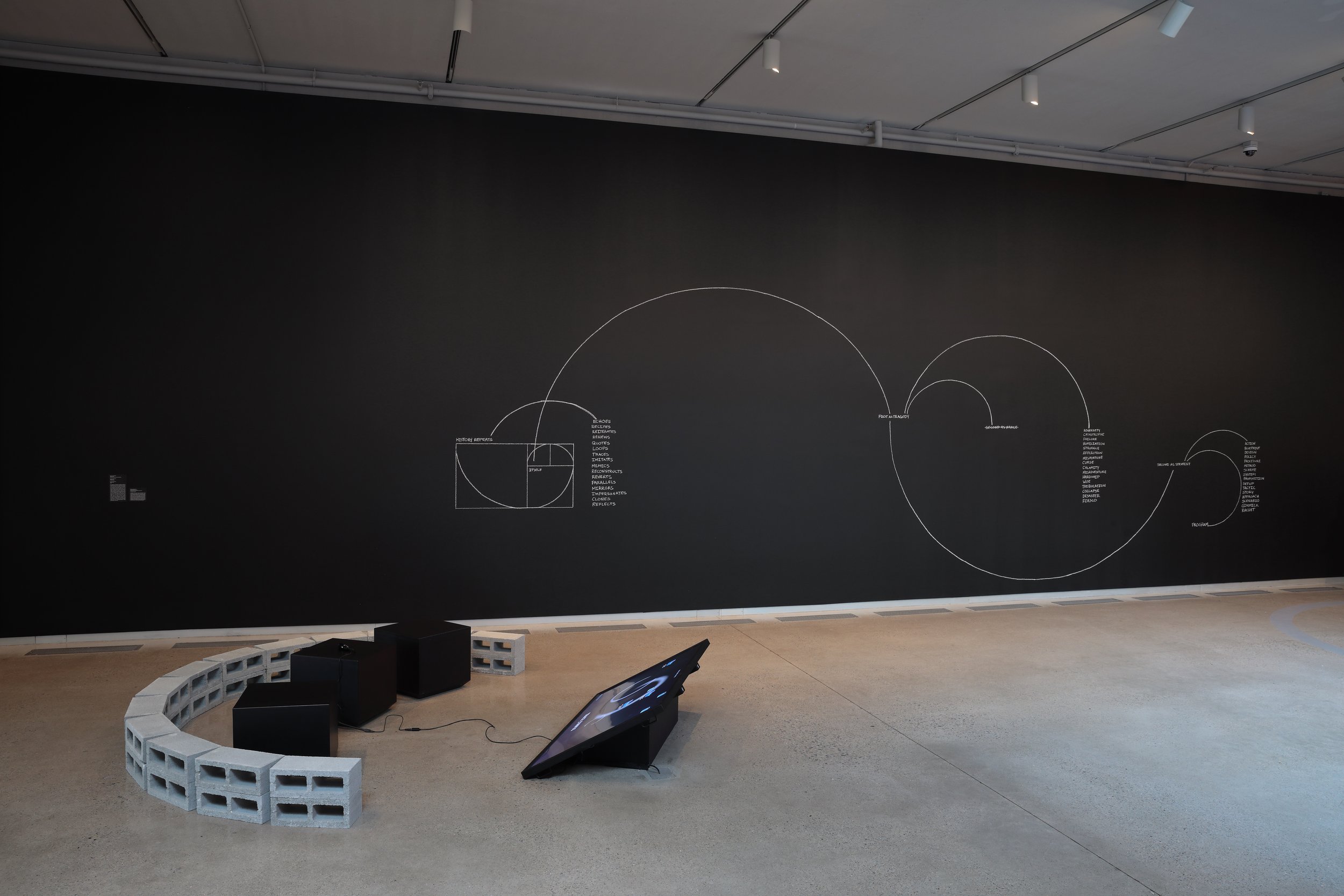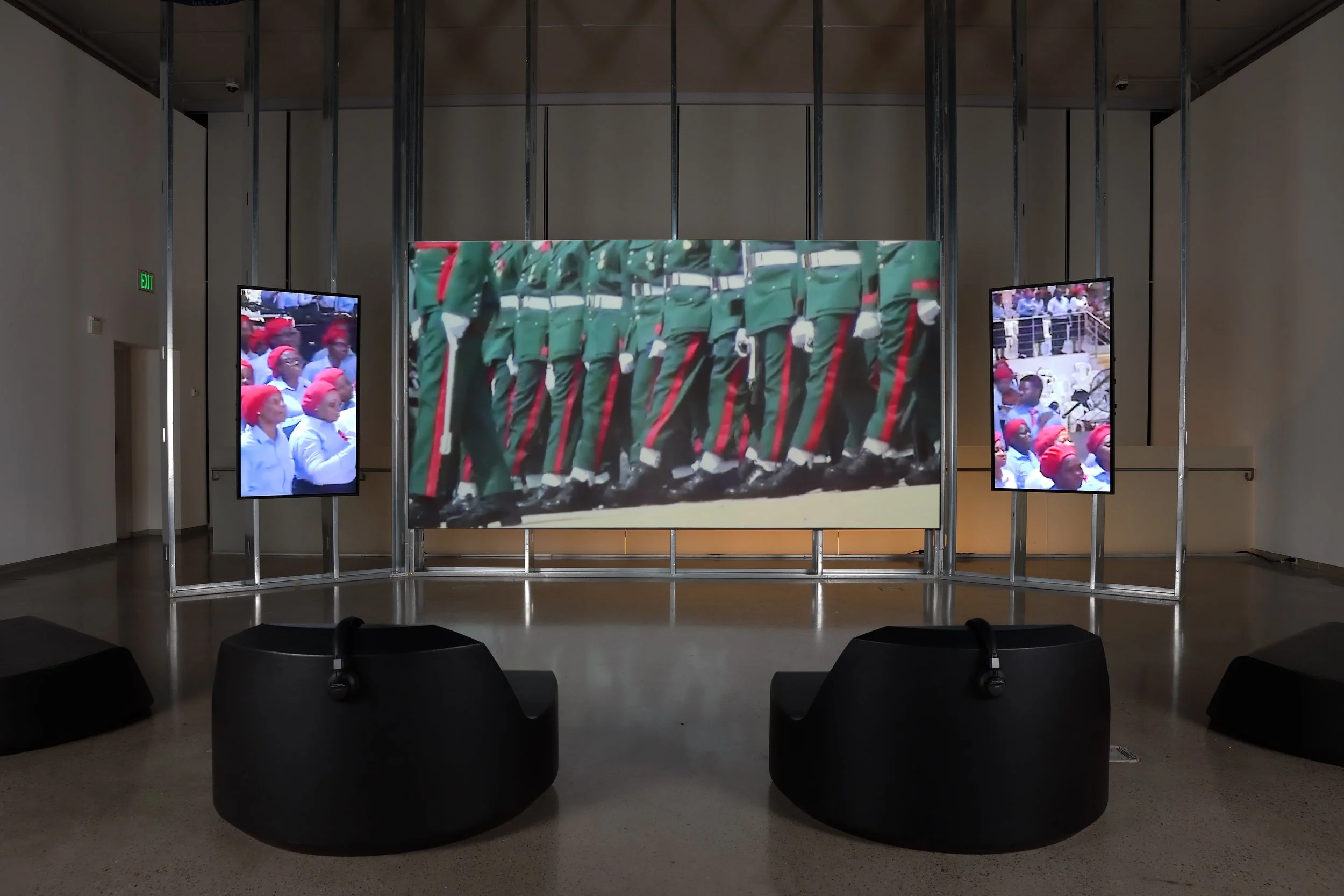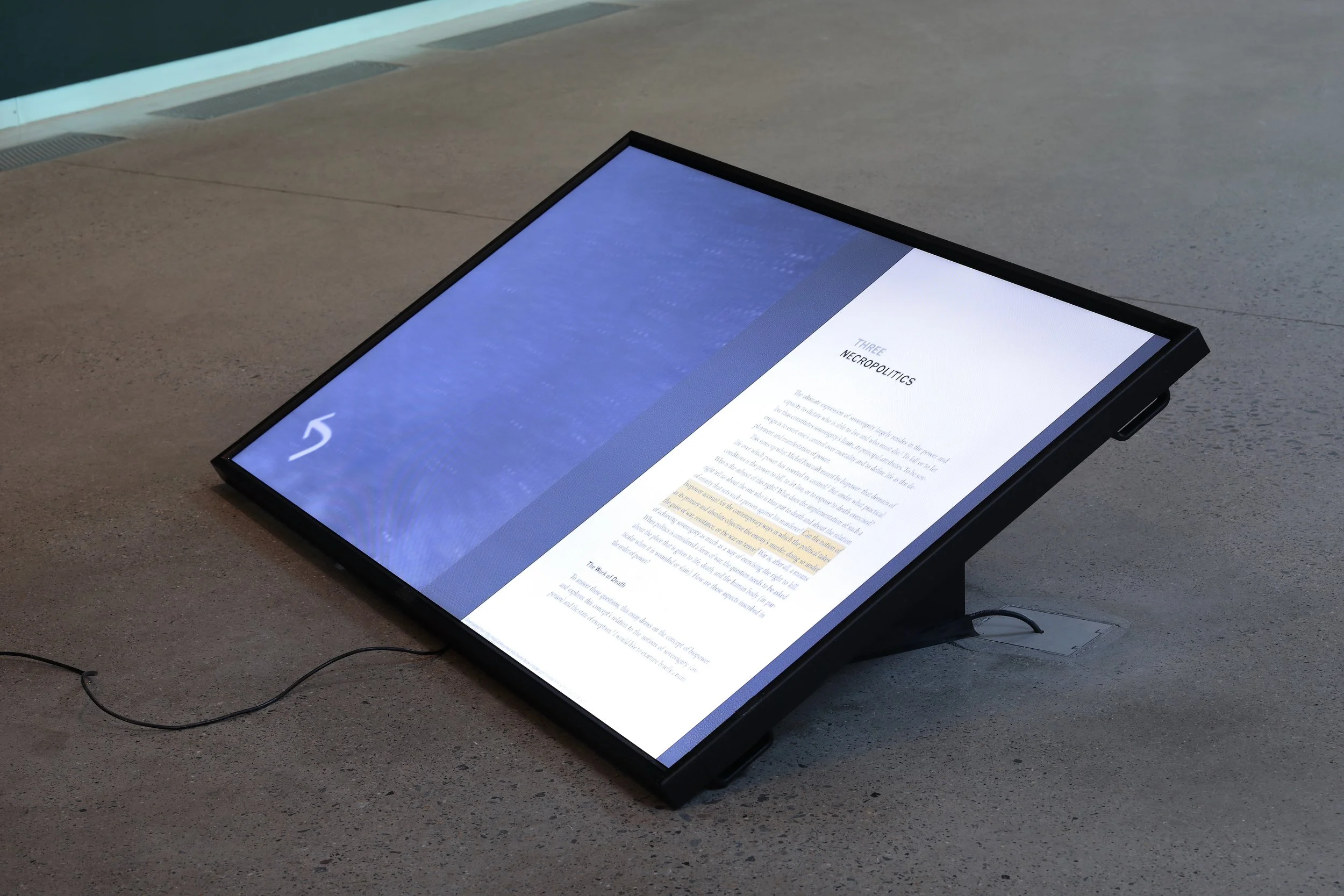Traces of Ecstasy | ICA at VCU, Richmond VA

Traces of Ecstasy is an adaptation of a pavilion and exhibition project that premiered at the Lagos Biennial in February 2024. This second, reimagined iteration of Traces of Ecstasy at the Institute for Contemporary Art at Virginia Commonwealth University (February 16 - July 14, 2024) continues the Lagos pavilion’s aims to unsettle the colonial capitalist power structures that maintain and reproduce the ideological legitimacy of the nation-state model in post/neocolonial Africa and the wider world.
Providing a space for critique, repair, and “freedom-dreaming,” it features artists from the African continent and its diasporas including Nolan Oswald Dennis, Evan Ifekoya, Raymond Pinto, Temitayo Shonibare, and Adeju Thompson/Lagos Space Programme. The exhibition expands on the scale and breadth of each artist’s contribution to the Lagos pavilion, presenting works that span sculpture, installation, video, sound, drawing, textile, performance, and digital art, in addition to a reading room and a symposium. Continuing on from the first Traces of Ecstasy symposium held during the 2024 Lagos Biennial, this second symposium explored similar theoretical terrain on African indigeneity, postcolonial statecraft, queer and feminist African politics, and intersections of digital technologies and African metaphysics. Speakers included Kwame Edwin Otu, Kevin Okoth, Nkhensani Mkhari, Kameelah Janan Rasheed, and Nkiru Nzegwu.
The project is titled after an essay by Rotimi Fani-Kayode, a queer exiled British-Nigerian artist whose photographic works combined Yoruba ritualistic practice and transgressive homoeroticism to destabilize colonial fictions of nationality and positivist rationality. Engaging the diasporic movements of figures such as Fani-Kayode (who studied in Washington, D.C. and New York) and Tafawa Balewa (who visited the United States shortly after Nigeria achieved independence), this recursion of Traces of Ecstasy across the Atlantic both reflects on the structural violence that permeates the African postcolony and considers the historically significant oceanic distance connecting the exhibition’s two sites in Lagos and Richmond. Oriented toward a future horizon of queer, decolonial liberation, Traces of Ecstasy hopes to illuminate alternative, anarchic forms of African collectivity for the twenty-first century.
Exhibition Materials




































